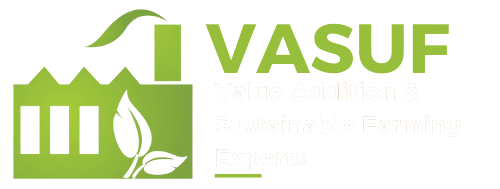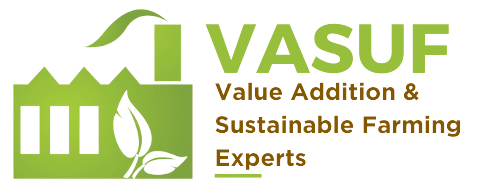
Certified Agribusiness Training: Food & Agriculture Business Models
Consisting of 15 modules.
Right Business Model is critical for a business to scale profitably.
Business Models should take the sector dynamics and local context of the business into consideration. This course helps you understand the business model levers and enables you to apply the levers to your Food & Agribusiness context. The understanding and insights this course provides are critical for your growth as a professional or as an entrepreneur.
What You Will Learn:
-Food and agribusiness value chain structures and operational dynamics
-Understanding formal business structures suitable for different agricultural value-creation operations (for-profit, cooperative, and social enterprises)
-Designing the four key business model components(Differentiated Value proposition, Distribution strategy, Complementary partnerships, Sustainability Components)
-Practical application of business model framework contextually based on “Three” real-life case studies
-Understanding how to leverage Business Model elements for Business plan profitability
In addition to Food and Agriculture Business Models
- Certified Sales and Marketing Training Module
Marketing and sales training can deliver significant business benefits. Training your employees in better sales techniques, customer service skills, and marketing expertise helps boost sales and improve customer satisfaction
Marketing and sales training needs:
Identifying your employees’ sales and marketing training needs will help ensure that your training budget is spent effectively.
- Review your overall business strategy and how marketing can contribute. For example, whether the business aims to maximize short-term sales and profits, or to develop long-term customer relationships.
- Set measurable objectives and standards. For example, how many new prospects you need to contact each month and what proportion convert into customers. Or standards for customer service, and measures of customer satisfaction and loyalty.
- Measure how well you are achieving your objectives. Get feedback from customers, for example by using customer satisfaction surveys and following up with customers who stop buying from you.
- Identify weaknesses in the performance of different team members, or the business overall, to highlight training needs. For example,
- poor sales performance might point to a lack of selling techniques;
- shrinking margins might indicate weak negotiation skills;
- low levels of repeat business suggest a need for customer service training.
- Decide what training is required. This might include:
- -training to improve specific marketing activities, such as advertising and PR;
- -developing new capabilities in internet and social media marketing;
- -complementary skills such as using IT;
- -training managers in sales and marketing management.
As well as helping develop new skills, training courses can help motivate and reinvigorate jaded employees:
- Sales and marketing training options
A marketing training plan should be part of the way you manage employees from the outset. Start with a well-planned induction program for new employees.
Practical training can be an important part of building skills, particularly in areas such as sales. Options can include:
- role-play exercises;
- accompanying employees on sales calls;
- debriefing employees thoroughly after successful or unsuccessful activities.
If you lack the skills or resources within your business, you might want to bring in a sales coach or marketing consultant to help develop marketing and sales skills. Other options include a wide range of training workshops, seminars, and online training.
Marketing specialists may need a planned training and development program, as part of the continuous professional development (CPD) requirements of a formal marketing qualification.
- Certified Food Safety Training:
-VASUF offers various pieces of training related to Food Safety. For Individual Entrepreneurs to Corporates, we offer online as well as On-Premise training in Food Safety.
Following is a list of trainings we conduct:
- HACCP
2. GMP
3. ISO 22000
4. FSSC 22000
5. TACCP, VACCP
6. BRC
7. IFS
8. SQF
9. FSSAI compliance
10. HARPC and FSMA requirements
11. Training based on FSMS/ food safety assessments.
12. FSSAI FosTaC (Advanced Manufacturing, Advanced Catering, Advanced Storage & Distribution.

